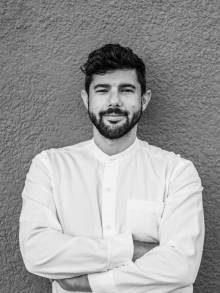Gavin Silber
Master of Urban Planning
-
2015

How did your experiences at NYU Wagner prepare you for your career?
Some of the biggest challenges of our time - including climate change, wealth inequality, and the rise of populist politics - can only be addressed through activism that is global as well as local. Being at NYU and in New York gave me the space to meet people from around the world, and begin making my contribution towards building international activist solidarity and knowledge sharing networks. There are few cities in the world that provide exposure to people and organizations from everywhere like New York, and Wagner is located at the heart of it.
Why did you choose NYU Wagner for graduate school?
I came into contact with NYU Wagner through Professor Paul Smoke. In our conversations, Prof. Smoke came across as someone similarly grappling with the challenges of bridging the chasms that exist between policy and practice, and governments and citizens. These questions lie at the heart of governance in the 21st century, and Wagner doesn't shy away from them. I also liked how coursework focused both globally and locally. New York City serves as an excellent urban policy laboratory, and though my interest is more in the Global South, I found I learnt a tremendous amount through courses that use this amazing city as a classroom.
DESCRIBE YOUR CURRENT JOB.
I helped to develop and now co-direct a global fellowship program called the Bertha Challenge. Every year Bertha Foundation will award fellowships to leading activists and journalists from around the world, to focus their attention on answering one pressing social justice challenge. Our first Bertha Challenge kicked off in June 2019, with a focus on land and housing justice. Fellows will spend the year working collaboratively and independently to deep-dive into the systemic causes of land and housing crises (at home and abroad), developing ideas on how things could be done differently, and then finding ways of amplifying these findings to a wider audience.